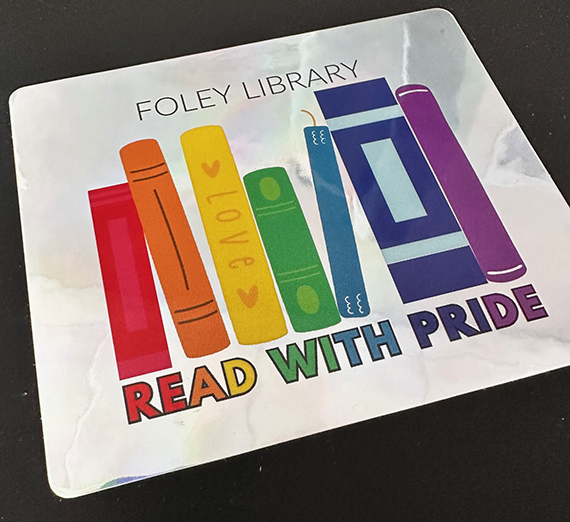Foley Celebrates the Freedom to Read and the LGBTQ+ Community

With Banned Books Week approaching, libraries across the nation are highlighting challenged and banned books. This year, the focus is on LGBTQ+ titles, which topped the list of most challenged books in 2023-24. The library's display, in conjunction with the Lincoln Center's anniversary celebration, reminds us of the ongoing battle for representation and acceptance. As we approach Coming Out Day, these overlapping themes of banned books and visibility underscore the importance of celebrating diverse voices and challenging censorship.
Notable Moments in LGBTQ+ Censorship History
In 1926, The Captive was shown on Broadway. It included a portrayal of lesbians. This led to scandal and the adoption of a state law against obscenity. This continued in 1927 as a show called The Drag experienced financial success, but was also forced to close because of the homosexual content.
ONE Inc. was founded in 1952 to publish the nation’s first widely circulated homosexual periodical, ONE Magazine. The postmaster in Los Angeles refused to allow this magazine to circulate. He believed it was obscene. The case was examined by the Supreme Court in One, Inc v. Olesen. They ruled that homosexual content was not automatically obscene and is protected under the First Amendment.
In 2000, a case was opened against two children’s books which portray LGBTQ+ characters (Sund v. City of Wichita Falls, Texas). The plaintiffs wanted the books removed from the children’s area at the library. Nevertheless, the court ruled to leave the books in the children’s area. They stated that “the right to receive information is vigorously enforced in the context of a public library”.
In 2022, Tim Anderson sought temporary restraining orders against two books: Gender Queer and A Court of Mist and Fury. He wanted to prohibit librarians and booksellers from giving the books to minors. However, the judge dismissed the case on the basis that it violated the First Amendment.
Currently, many curriculum laws in the U.S. ban public school instruction related to LGBTQ+ topics, such as gender identity or sexual orientation. In addition, books are being challenged or banned in public libraries because of their portrayal of LGBTQ+ issues and experiences.
As we continue to navigate a world often marked by fear and misunderstanding, it is imperative to remember that censorship is not the answer. By embracing diverse voices and celebrating stories that challenge the status quo, we can foster a more inclusive and compassionate society.
Join us in supporting access to banned books and LGBTQ+ authors. Visit the Foley Library to explore our collection of LGBTQ+ titles, grab a commemorative sticker, and discover the power of representation. Don't forget to also visit the Lincoln Center to learn more about the LGBTQ+ community and the ongoing fight for equality. Together, we can create a world where everyone feels seen, heard, and valued.
"Notable Moments in LGBTQ+ Censorship History" by Corrine Norris, MLIS Intern, Foley Center Library
